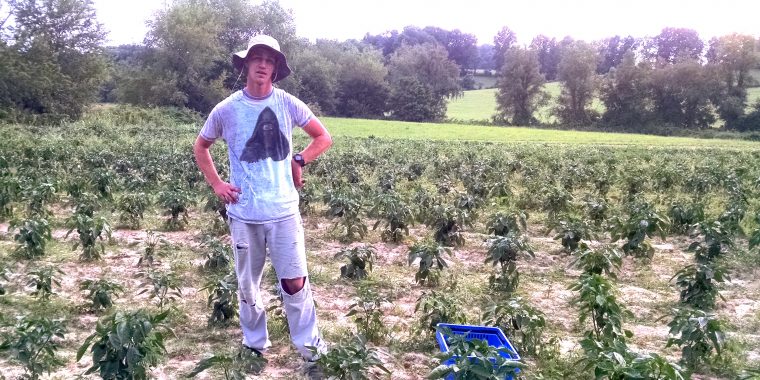
Appalachian Sustainable Development (ASD) is a non-profit that has been working in Central Appalachia since 1995. With a rural service area of more than 15 counties facing issues of unemployment, chronic poverty, food insecurity, poor infrastructure and lack of investments, ASD’s dedicated staff members know the challenges people in the region face. In addition, attrition among farmers continues (the average age of farmers in Central Appalachia is 58+ years old) and food insecurity affects one in five Appalachians. With these things in mind, ASD has a bold vision for transitioning Appalachia that ‘grows’ farmers to address both of these challenges.
With help from a Farm Aid grant, ASD created an Organic Growers Group (OGG) as a way to increase the number of successful certified organic growers in Central Appalachia. Because certified organic crops bring a higher price point, new/beginning specialty crop farmers, farmers transitioning from conventional to organic production, small, socially disadvantaged and limited resource specialty crop producers, can all benefit significantly from the higher price points available for certified organic produce. The OGG model provides access to organic certification at a reduced cost along with the support needed for farmers to make this transition successfully.
ASD provides farmers with training, technical support and educational materials that covers topics like: on-farm Standard Operating Procedures, Crop Protection Records, National Organic Program Regulations, and Whole Farm Revenue Protection. Designed to provide farmers with guided management tools to help them to achieve pest, disease and weed management, water conservation, field monitoring, awareness of adjoining land use, compliance with organic production from seed to product, and so much more. The manual farmers are provided with is used as a reference document and a place to store required documentation for organic certification.
With the goal of program expansion, groups interested in implementing an OGG model in different locations in Virginia and surrounding states have already been identified. ASD strongly recommends that new farmers in Central Appalachia consider becoming certified because demand for certified organic produce is substantial and largely untapped in the mid-Atlantic region. In addition to increasing the financial value of truckloads of produce coming out of Central Appalachia (making a distribution corridor financially viable), ASD hopes to increase the profitability for farmers and increase the number of people entering this field.
Matt Smith recently worked with ASD to become certified in organic production. Young farmers like Matt are interested in the OGG model as an alternative that is very appealing. Here’s what Matt had to say, “they [ASD] have done everything for us except grow the produce…it doesn’t get much easier than this!”


